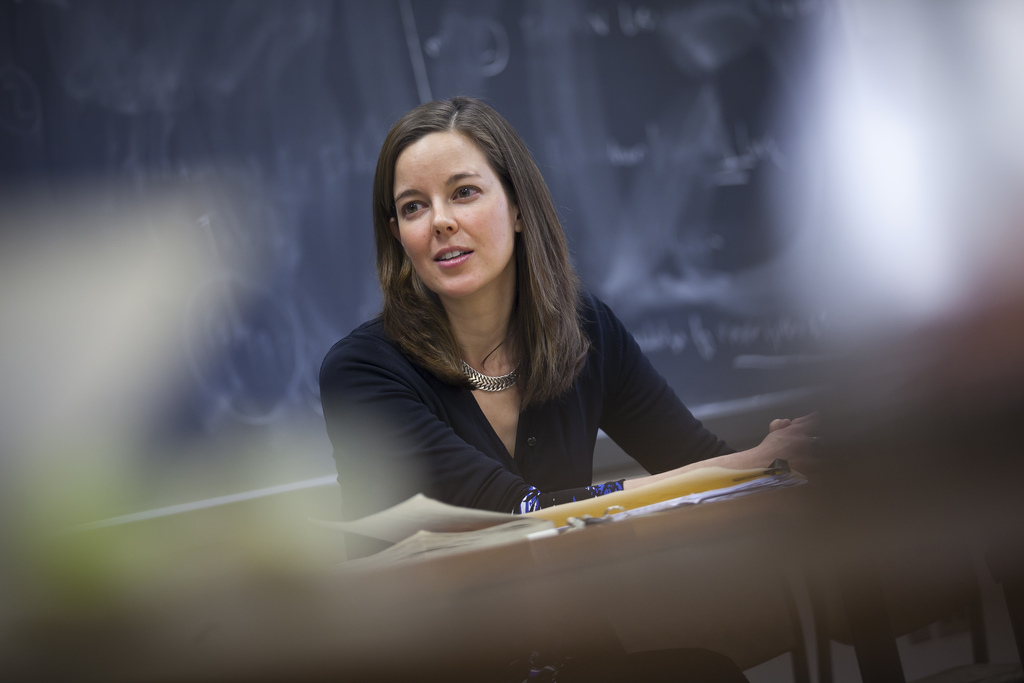Submitted by CCRS Center on

This blog is cross-posted with Education Sector at AIR at The Quick & the Ed.
No matter what side you’re on in the battle over standards, testing, school choice, or teacher tenure, everybody agrees that kids must leave high school ready for college and careers.
State leaders are giving this commitment a lot of thought and are working to define what “college and career ready” means for their students. So far, 36 states and the District of Columbia have working definitions. While many vary only slightly from the mainstay, “A college-and career-ready student is prepared to succeed in college and postsecondary workforce training programs,” some states have incorporated refreshingly robust thinking about the overarching purpose of schooling in the 21st century.
Nearly a hundred years ago education philosopher John Dewey wrote, “our chief business with [the young] is to enable them to share in a common life”—social, economic, domestic, global, political, legal, and even for some, religious.
But Dewey wasn’t talking about schools; he was taking about education in its broadest sense—as a means to the “social continuity of life” (Democracy and Education, 1913). In Dewey’s day, formal education was designed to prepare students for the economy of the Industrial Age. Today, globalization has made our world smaller, but it has also made the importance of that broad sense of education much greater.
Today, we have amplified expectations. To be ready for college and career means to be ready for the full range of postsecondary opportunities that await all high school graduates.
New Hampshire’s definition says, “Evidence and experience indicate that the knowledge and skills needed to succeed in college and career are greatly similar, and that all graduates will need some form of postsecondary education or training to succeed during their careers … This same set of knowledge, skills, and dispositions is also vital for student success in terms of citizenship, in addition to college and career readiness, including the ability to contribute and succeed in our increasingly diverse, democratic, global society” (U.S. Department of Education, 2013).
Some state definitions of college and career readiness include cultural understanding, ethical decision-making, integrity, social and emotional competencies, problem solving, critical thinking, and personal, community, and political responsibility. Many, though not all, also include a baseline of required academic knowledge.
Consider these excerpts from the definitions used in Hawaii, Oregon, and Massachusetts. All require a foundation of academic performance, but each includes distinct elements that reflect their state priorities.
|
Hawaii |
|
“Students, who are prepared for meaningful engagement in college, career, and community, have successfully … built a strong foundation of identity through an ongoing process of wayfinding to engage in local, national, and global contexts” “Wayfinding: Students are able to identify their kuleana and work hard to fulfill these responsibilities to their families, ‘āina, community, and future and past generations. Students know what makes their communities unique and become more involved through opportunities such as volunteer service, ecological stewardship, and civic engagement. Students understand and can comfortably interface with diverse perspectives, cultures, and worldviews to flourish in and sustain local and global communities” “By ‘community,’ we mean the set of interdependent relationships among physical, social and/or cultural groups linked by a shared responsibility for one another, the natural world, and local and global well-being” (Hawaii P–20 Partnerships for Education, 2013). |
|
Oregon |
|
“A College and Career Ready Oregonian....
(Oregon Education Investment Board, 2014). |
|
Massachusetts |
|
“In high school, students should demonstrate:
“Work Ethic and Professionalism
(Massachusetts Department of Education, 2013). |
Parents, teachers, schools, districts, states, and especially students all want schools that prepare graduates to thrive in the 21st century. Too often, political controversy obscures the goals we all hold in common. Perhaps these college and career readiness definitions-- touchstones for state planning and accountability-- can also provide a common ground for a new generation to, as John Dewey wrote, “share in a common life.”
Click here to read the full brief.
Anne Mishkind is a Research Associate at the College and Career Readiness and Success Center at AIR.
Photo credit: Flickr

Add new comment